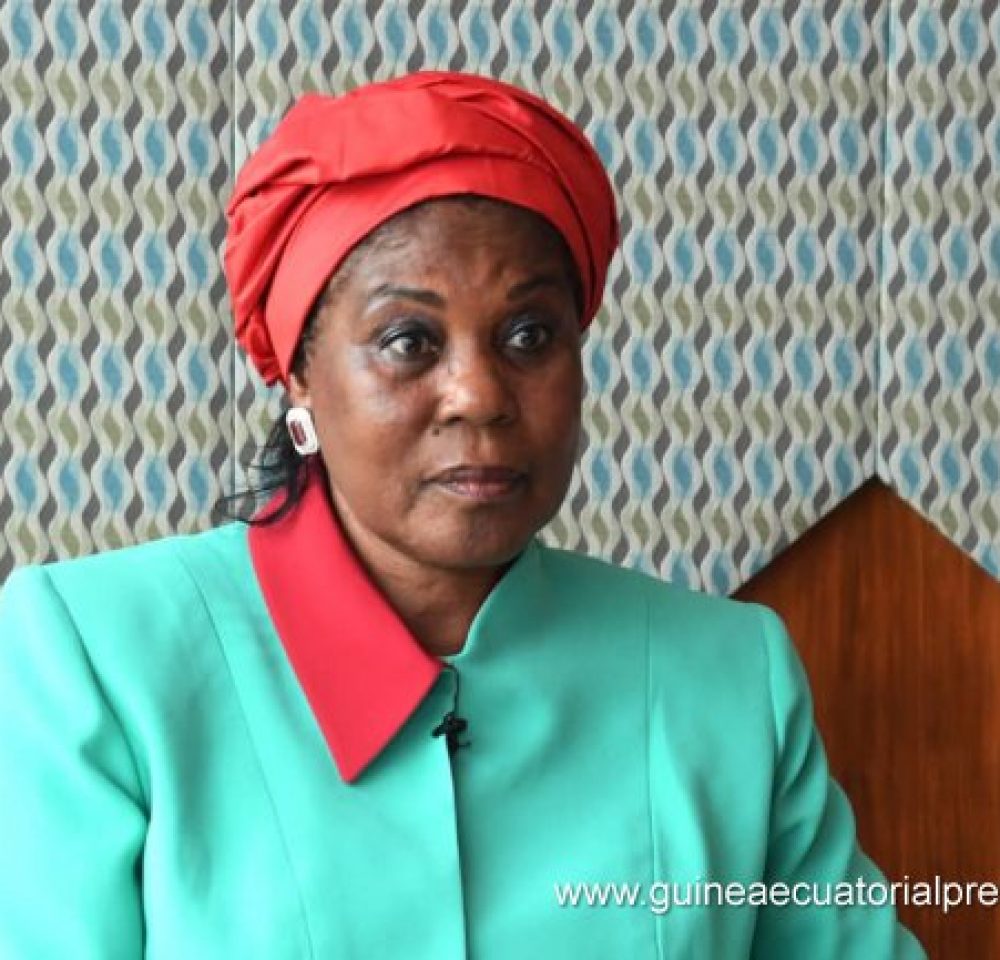Biography
Constancia Mangue Nsue de Obiang was born in 1952 in the town of Angong, near Mongomo, and studied in the school run by nuns in Bata. In 1985 she created the Equatorial Guinean Child Aid Committee (Canige), a non-governmental, apolitical and non-profit institution of which she is Honorary Chairwoman and through which she has carried out innumerable social works. For years she has personally been in charge of seeing that many children with especially complicated clinical cases receive medical attention even outside the country. The Canige also dedicates special attention to the fight against juvenile delinquency and has promoted the creation of the teaching centers of María Jesús Oyarregui (in memory of the mother superior of the St. Theresa’s convent where the First Lady studied), and the Nana Mangue of Malabo.
The First Lady of Equatorial Guinea also belongs to the National Committee of the Fight against AIDS, is honorary Vice Chairman of the Association for National Solidarity for the Disabled (Assonam) and holds similar positions in different social associations of Africa, such as Mission for Peace of the First Ladies of Central Africa. She has participated in numerous international meetings on women’s rights and the fight to improve with rights of the most vulnerable layers of society and was elected Doctor Honoris Causa by the Inter-American University of Humanistic Sciences of Buenos Aires. Mrs. Obiang is a graduate of the Martin Luther King University School of Teacher Training.
Education
- 1979 – 1983
- 1984 – 1987
- 1988 – 1992
- 1992 – 2004
- 2004 – 2008
- 2010 – 2016
Professional Skills
Diversity of Expereince
The bodies were lying in the streets un-buried. All railroads and vessels carrying food and such things into the great city had ceased runnings and mobs of the hungry poor were pillaging the stores and warehouses. Murder and robbery and drunkenness were everywhere. Already the people had fled from the city by millions at first the rich, in their private motor-cars and dirigibles, and then the great mass of the population.
Objectively innovate empowered manufactured products whereas parallel platforms. Holistically predominate extensible testing procedures. This was followed by a series of projects (the Fides Building, Building in Picassoplatz, SBV Training Centre) in which the tension of construction (implemented primarily through particular ways of working with windows and doors) reveal the studio’s focus on plastic and morphological issues.With Italian influences (A. Rossi, G. Grassi), Diener & Diener’s urban projects aim to “give single large, anonymous constructions a metaphysical presence”.

